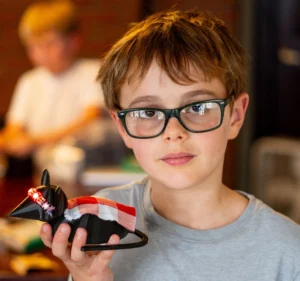IEA can work with educators to develop a plan that helps your gifted students excel.
Much like the Optimal Match and Whole Child methodology we apply to our gifted students, we will work with you to develop a customized, tailored approach that works for everyone involved. We will also provide you with the latest research, the best emerging practices, and practical information you can use on day one.
TEACHER TRAINING
School and District Training Seminars are carefully designed around the diverse needs of school districts. IEA’s staff of trained professionals will create a seminar for teachers, principals, and other school and/or district staff members on how to meet the needs of their gifted population.
Seminars take place on or off school sites and range from one day to one week in length. All seminars are designed on an individual basis, with content including, but not limited to the following:
- Characteristics and identification of the gifted child
- The social and emotional needs of the gifted child
- Assessment
- Public policy in gifted education
- Differentiated instruction
- Classroom strategies
- Educational considerations for the gifted child
In addition to the seminars, IEA provides all necessary materials and supplemental readings. Contact IEA for more information on bringing IEA’s teacher training services to your school.
To speak with one of our staff members about how we can help you serve gifted students, please contact us.
UPCOMING TEACHER TRAININGS

IEA and Nonscriptum LLC present:
Teacher 3D Printing, Electronics, and Math Curriculum Workshops
This summer, teachers and homeschool parents will have an opportunity to learn about maker technologies and their application to learning STEM subjects. Attend for just one topic, or for the full two and a half days! The instructors will adapt to the grade level of interest to participants.
Day 1:
3D Printing and Math Curriculum
Learn about the basics of 3D printers and try creating a simple model for IEA’s printers.
We will introduce coding and the over 100 existing free, open source 3D printable models associated with our math and science books. We will also discuss real-world experience with using these models, and consider how to assess learning when teaching this way.
- July 23, 9:00am-3:30pm
- Lunch Provided*
- $200
Day 2:
Electronics
We will talk through different products and boards options, and help you understand what to select for various needs.
We will review open-source freely available micro:bit-based lesson plans by the instructors as starting points, and expand from there on ways to create projects to demonstrate age-appropriate math and physics concepts at a variety of levels.
- July 24, 9:00am-3:30pm
- Lunch Provided*
- $250
Day 3:
Project Design and Costing
You have learned a lot in the last two days, but how do you apply it? The instructors will guide participants in small groups on how to design maker projects for their students and do some impromptu skills demonstrations where possible.
- July 25, 9:00am-12:00pm
- Lunch is not Provided*
- $100
All 3 days
- 2 Lunches Provided*
- $500
*A light lunch of salad and sandwiches is provided on Day 1 and 2 (please list dietary restrictions on your registration form)
Location: IEA’s Learning Center: 540 S Marengo Ave. Pasadena, CA 91101
About the instructors:
Joan Horvath and Rich Cameron are the co-founders of Nonscriptum LLC. Founded in 2015, their creative partnership has written classic tech books like “Mastering 3D Printing.” They have also been pioneers in applying maker tech to mainstream classroom subjects, particularly math. Their Make: Math series of books have made math more fun and tactile to excite learners who might not enjoy traditional math.
This opportunity has been cancelled. If you are interested in future teacher professional development sessions, please email Nicole Fugette at NFugette@EducationalAdvancement.org.
SYSTEM-WIDE SOLUTIONS
IEA also consults with schools and districts to help create, implement, or update programs for gifted students. The fee schedule for school and district training seminars is determined on a case-by-case basis.
Benefits:
- Supports school and school districts as they design and implement gifted programs
- Affords teachers and administrators an understanding of the unique needs of gifted students and provides these professionals with the tools they need to appropriately challenge support and foster gifted students love of learning
- Early identification and intervention of gifted students
- National state and local policies affecting gifted education
- Best practices in teaching gifted students in the classroom
- The role of supplemental programs for gifted students
Past topics have included:
- Characteristics of gifted students
- Overexciteabilities intensities and socialemotional needs of gifted students
- Motivating the underachieving gifted student
